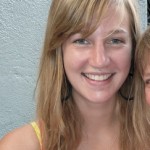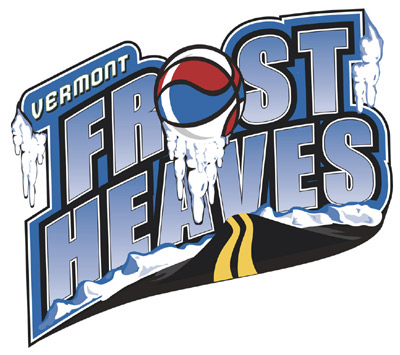
Vermont Public Radio
Julia Hurvich, 2008.5
Listen to the VPR report here: Vermont Public Radio- IBM Layoffs (Vermont Edition)
Over the past month at Vermont Public Radio, my work as an intern proved quite valuable, and my tasks and experiences spanned a variety of different aspects of radio production. I worked on Vermont Edition, the daily news magazine program hosted by Jane Lindholm which airs from 12:00-1:00pm on weekdays. I worked with Jane as well as the other members of the production team, including Sarah Ashworth, Patti Daniels, Tim Johnson and Chris Alberteen. As an intern, I was given the opportunity to explore all aspects of the show’s construction, from pre-production content research and scheduling, to interviewing guests, recording two ways and even to post production work in sound editing and web content management. Coming into the situation with little to no experience in radio journalism, I feel I have gained a comprehensive understanding of the day to day process of what its like to produce a quality local news program.
The guidance I received under producers Sarah Ashworth and Patti Daniels and Vermont Edition host Jane Lindhold were incredibly valuable. They shared with me their experience, expertise and stories and helped me through my daily workdays. I never felt like I was being asked to do classic intern busy work such as Xeroxing or making coffee. They included me as part of their team; I participated in conference calls, sat in during broadcasts and interviews, went out and did field recordings, and helped form ideas and content for programming.
I was surprised and pleased to discover variety of responsibilities I was given. From scouring over local newspapers to going out into the streets of Burlington to get interviews and sound bytes, I feel the job forced me to engage with the community, and I reached a level of understanding and awareness of Vermont that I never experienced in the sequestered, and sometimes isolated world of the Middlebury community.I learned about the inside workings of radio production, as well as what was going on in the world around me. It forced me to answer questions about relevancy, interest, and awareness in a way I never had before.
During the very first program I sat in on, I learned how quickly a show could change from moment to moment. President of Vermont Public Radio, Mark Vogelzang suddenly announced his resignation, effective February 1st and named Robin Turnau as the new President and CEO. There had been another show planned for that day, but as soon as the news broke, the production team made some fast last minute changes, wrote a script, and ushered in the guests. After the show aired, I sat in on the daily de-briefing phone conference, which takes place after every show. Patti, Sarah and Jane call producer Susan Keese in the Manchester studio and analyze the day’s program – going over strong and weak points of the program, the quality of the guest, the listener call in responses, as well as what went well and what could have been improved both from the producers perspective and Jane’s. I learned to stay focused on the show as it aired, while completing whatever other task I had been assigned, so I could add my own opinions into the conversation – which were regularly called on.
Sitting in the studio during the live broadcast, I saw how quickly and efficiently the producer works with the engineers, the phone operator and Jane – the host. Throughout the show, Jane is in the studio with the guest or in the studio while talking to the guest who may be calling in from another studio. The producer is in constant communication with Jane by way of instant messenger. The audio engineer adjusts the levels of the studio mics as well as the remote studios or other guests who may be elsewhere, and then coordinates all of the different sound and digital components of the show – including advertisements, transitional music, and other sound bytes and pre-recorded segments that might be included. Tim operates the phone, judging quickly who will make a good contribution to the show, receiving calls and putting people on hold with quick turnover to maximize efficiency. All of these elements are timed to the minute in the script – which the producer hands out to everyone at the top of the show.
I assisted with a remote broadcast from the State House in Montpelier as the new legislature convened. I got to witness the amount of preparation and set up required for a very brief interview. It was exciting to be a part of the news coverage for the day, as I had never been to the statehouse before. The day came to an end with a nice staff lunch at a restaurant in Montpelier with Jane, Patti, and executive producer and Vice President of news John VanHoesen. This provided a nice opportunity to socialize a little with the people I work with.
The project I was able to work on most extensively was a B segment which aired on Wednesday January 21st about a non-profit organization and annual event called Ski for Heat. I contacted the founder of the non-profit organization, and pre-interviewed her over the phone. Based on some background research and my interview with her, I wrote a script for the interview, which Sarah edited, and which I then sat in on. Afterward, I edited the interview down for broadcast, which was then edited by Jane. Having worked on several of those elements in other programs on Vermont Edition, seeing one program through from beginning to end gave me a sense of completion and confidence, as well as a broader understanding of all the different components that go into a segment of that nature.
Working with sound engineer Chris Alberteen gave me some familiarity with the sound-editing program they use called Vegas. After observing Chris edit a program, having the Ski for Heat segment to edit on my own was a good test of the knowledge I had gained. Working with Tim, the web producer, allowed me to learn the interface for putting content online once completed. These elements, more technical in nature, are extremely useful for much of the work that is required in multi-faceted jobs in the digital realm.
The shows are always thoughtfully planned, but some things occur which are unexpected and more difficult to prepare for. Over the past few weeks, we’ve all been researching and preparing for the imminent layoffs at the IBM factory in Burlington. With no way of knowing exactly when they would occur, we tracked the news daily, preparing alternate guests and programs to account for the margin of uncertainty. They had guests at the ready, sound bytes prepared, and a story about the history of the plant to be aired in addition to the breaking news story. Flexibility and attentiveness to the latest developments were key elements to successful coverage.
Other topics I helped research included the potential merger of all public institutions of higher education in Vermont, personal interest stories on radical and sustainable living, the Hardwick sustainable food movement, Dartmouth layoffs, countless budgetary issues, authors, artists and other events. The tasks in the office varied from day to day. One day I learned about the website and content management, another I would work with the sound editing program, and others I would comb the newspapers for current events. I prepared and organized reports for submission to the FCC, went to news planning meetings, helped write scripts and interview questions, and brainstormed new stories for segments and set the programming schedule for the following week.
The people I worked with were extremely helpful and patient – giving me the opportunity to explore all different facets of the show’s production. On certain occasions, I would have to listen to past shows to find a specific sound byte, and then use the sound editing program Vegas to extract it and render it to be used in a new program. These tasks helped me develop practical skills, as well as to become familiar with past programming.
My time at VPR happened to coincide with the inauguration, and so the first time I went out into the field with Sarah, we interviewed people about their expectations and feelings surrounding the event. Having a VPR microphone definitely helped with issues of legitimacy and immediate familiarity when interviewing strangers. We went to the high traffic location of the new Davis student center at UVM. This experience made me realize that going out and talking to people and allowing them to have a voice is my favorite aspect of public radio.
I was given three other opportunities to go out and get sound bytes in the field. Once I went around the Vergennes area and interviewed people about their feelings surrounding inauguration day. I got to talk to business owners and passersby, and engaged in some very interesting conversations both on tape and off. Then, on the day that the IBM layoffs were announced I got to go out and speak with people entering and leaving the IBM compound about their experiences. On my last day, I was sent out to the streets of Burlington to interview people about the current economy and how it’s affecting their daily lives.
This internship provided me with the perfect transition out of the classroom and into the real world. I was given plenty of guidance, support, and valuable information as well as the confidence and freedom from the people I worked with to try my hand at the vast array of tasks and responsibilities of radio production. The opportunity to work with professionals as experienced and knowledgeable as the Vermont Edition team was invaluable and I hope to take the practical skills and understanding I gained and apply it in the world of radio production sometime in the near future.
Contact the Career Services Office for more information!








